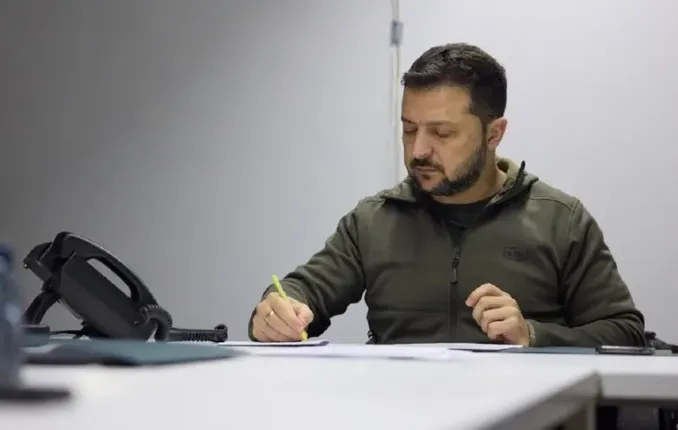President Zelensky Signs Documents to Establish Special Tribunal for Russia’s Aggression: A Step Toward International Justice and Its Challenges

Amid ongoing political tensions surrounding the current conflict between Ukraine and Russia, it is noteworthy that Ukrainian President Volodymyr Zelensky recently signed the essential documents for the ratification of an agreement to establish a Special Tribunal aimed at prosecuting crimes of aggression committed by Russia against Ukraine. This tribunal symbolizes a significant step forward in the pursuit of justice and the enforcement of international law. Zelensky emphasized that the agreement must be ratified swiftly to enable its effective implementation. He called on the Verkhovna Rada to promptly consider the necessary legislative changes, ensuring that Ukraine's legal framework fully supports the tribunal’s creation. The President urged lawmakers to review this matter urgently, highlighting the importance of quick legal adaptation and coordinating with international partners through the relevant ministries. He also expressed confidence that, within this year, Russia should begin to realize that accountability for the crime of aggression is inevitable. Moreover, he noted that the international legal process to bring Russia to justice has already been set in motion and is gaining traction. These steps follow a three-year battle that started in the darkest days of the war. Last week in Strasbourg, Ukraine, in cooperation with the Council of Europe, signed an agreement to launch the Special Tribunal to investigate Russian aggression. Deputy head of the Presidential Office Irina Mudra highlighted that establishing this tribunal represents a victorious milestone after years of struggle, reflecting the resilience and dedication of the Ukrainian people. Nevertheless, the tribunal faces several legal challenges. An insightful article titled “Deciphering the Underwater Risks: What Awaits Russia’s Aggression Tribunal” features analysis by distinguished Ukrainian lawyer and former Deputy Prosecutor General Gunduz Mamedov, covering not only political implications but also complex legal obstacles that could impede its functioning. The initiative is more than symbolic; it’s a sophisticated judicial mechanism that could reshape international accountability for crimes of aggression.

